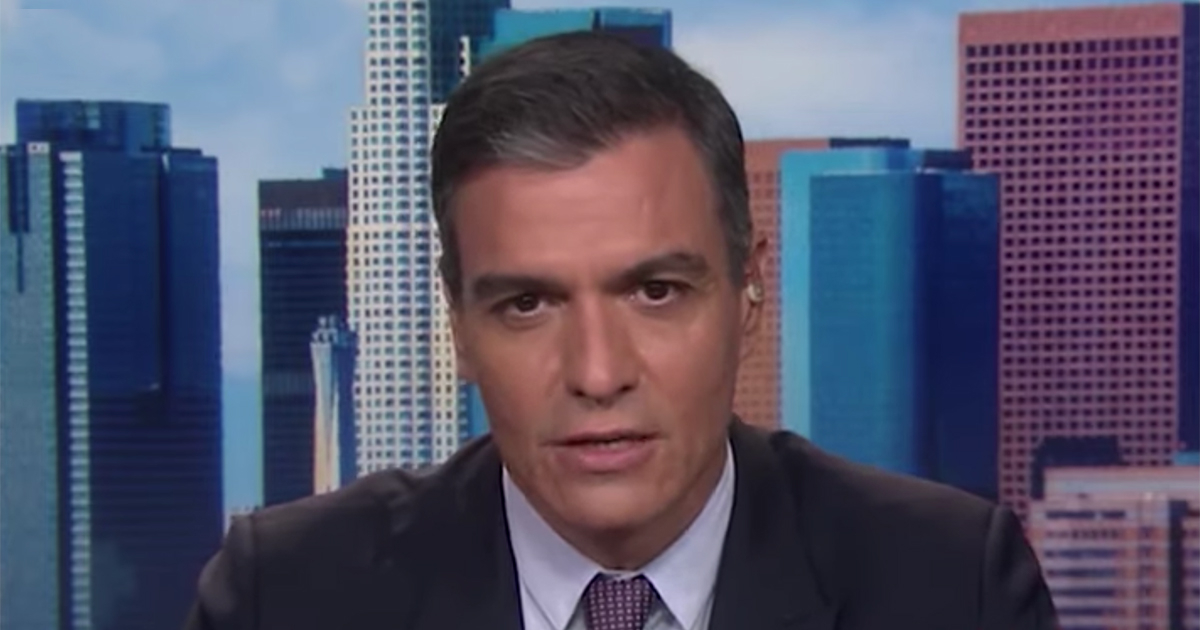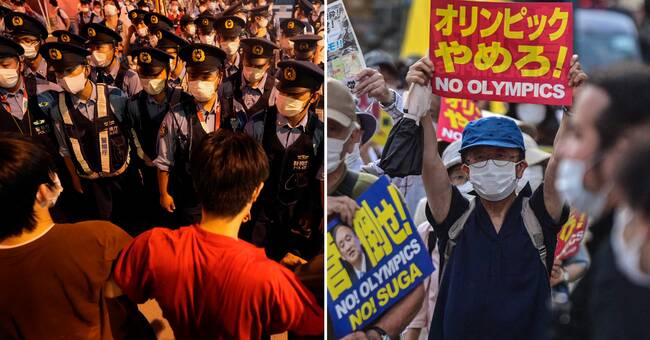The President of the Spanish Government, the socialist Pedro Sánchez, appealed for solidarity to the international community to donate vaccines against Covid-19 to Cuba, after the health crisis generated by the pandemic triggered historic protests on the island.
“It is very important, in order to have an absolutely global analysis of what is happening in Cuba, to be aware that Covid-19 is hitting very hard in Cuba as a result of the numbers we are seeing of infections,” he said. Sánchez in an interview from the city of Los Angeles with CNN in Spanish.
Consequently, he stressed, the solidarity of the international community in Cuba and in other parts of Latin America is needed to donate doses of vaccines and protect Cuban society.
“The international community must carry out an exercise of solidarity with the Cuban people by donating doses and helping to protect society in Cuba,” said Sánchez.
He also considered that the social outbreak on the island has “a translation” in the situation of the tourism sector, whose fall “has brought terrible consequences for the Cuban economy.”
He announced that Spain will start this week a strategy to donate vaccines against Covid-19 that includes 7.5 million doses, mostly for Latin America, through the global vaccine delivery mechanism COVAX, endorsed by the World Health Organization (WHO), and of which Cuba does not participate.
“This week we are going to start with our strategy of donating vaccines that we have in surplus in Spain and primarily where we are going to direct them is to a sister continent such as Latin America,” said the politician.
Sánchez was also questioned about the sanctions imposed by the Joe Biden administration on the Minister of the Armed Forces in Cuba, General Álvaro López Miera, and the repressive elite contingents for the violence unleashed against the protesters who took to the streets on 11 May. July.
In this regard, he said that he considered this measure “an internal matter of US politics”, which he respects.
The Spanish politician criticized the US embargo, but assured that he himself has requested “the Cuban government to initiate transformations and those reforms that are needed” so that the Cuban people, “without interference,” can “enjoy freedom,” he said.
Sánchez admitted on July 14, after the demonstrations in 60 cities on the island and the repressive response of the government in Havana, that “Cuba is not a democracy.”
“It is clear that Cuba is not a democracy … It is not,” he said.
At the beginning of the year, Cuba rejected its inclusion in the COVAX Fund for vaccines against Covid-19, an initiative of the World Health Organization (WHO), the European Commission and France so that citizens of countries with few economic resources have access immunity against coronavirus.
The island stated that it did not have the resources to buy vaccines, and assured that it was developing five vaccine candidates, one of which –Abdala– It was approved for emergency use on July 8 by the Center for State Control of Medicines, Equipment and Medical Devices (CECMED).
Despite this, and the fact that a high percentage of the population is already vaccinated, the health situation on the island is getting worse and hospitals are on the brink of collapse.
The situation is aggravated by the shortage of medicines in the country, one of the reasons that precipitated the social outbreak.
Following the demonstrations and the visibility of the crisis, the President of the United States, Joe Biden, said his government could bring vaccines to Cuba to alleviate the situation of the island’s people.
“We are analyzing variants to bring vaccines against Covid-19 to Cuba, with the guarantee that an international agency manages the distribution,” he said at a joint press conference with German Chancellor Angela Merkel, who was visiting the United States.
Other governments such as Mexico have announced the sending of humanitarian aid to the island, where it will send food and medical supplies on Sunday in order to release tensions in the Cuban political-social scene.
– .


